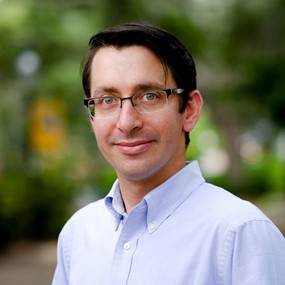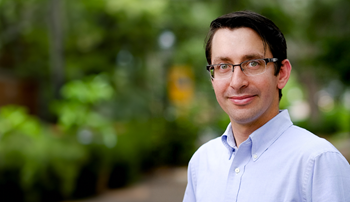Office Hours
By Appointment
In the news
Education
PhD, University of North Carolina at Chapel Hill
MA, University of North Carolina at Chapel Hill
BA, Yale University
About Me
Adam Domby is a historian of the Civil War and Reconstruction. His first book, The False Cause: Fraud, Fabrication, and White Supremacy in Confederate Memory (University of Virginia Press, 2020), examines the role of lies and exaggeration, in the creation of Lost Cause narratives of the war, as well as their connections to white supremacy. Looking at pension fraud, Confederate monument dedications, and other myths reveals that much of our understanding of the Civil War remains influenced by falsehoods and racism.
He is currently working on a book Freedom's War on the Waters: How African Americans Won the Civil War at Sea and Saved the Union, which will examine the roll of Black sailors during the Civil War. The book will focus on the lives of African Americans sailors, many of whom had formerly been enslaved. Using previously unused sources, including pension records, the book seeks to recover the voices, views, and experiences of Black sailors. He is also currently working on a coauthored history of African Americans at Monocacy Battlefield for the National Park Service.
Domby has previously written on a variety of topics including prisoners of war, southern Jewish history, guerrilla warfare, public history, and genealogy.
Previous to his arrival at Auburn, Domby was an assistant professor of history at the College of Charleston.
Dr. Domby is currently accepting both MA and PhD students as his advisees. Past graduate students have researched a variety of topics including African American women in Reconstruction politics, tourism during Jim Crow, education during Reconstruction, and Civil War memory among other topics. Dr. Domby works closely with his advisees to perfect their skills as a researcher, writer, and practitioner of history.
During the 2024-2025 academic year, Dr. Domby will be on leave as the Kimble Fellow at The Huntington Library.
Current Graduate Students:
Matthew Poirier (PhD student focused on Civil War memory)
Miller Eberlein (MA student focused on southern Jewish history)
Tyler Wilson (PhD student focused the Civil War in New Mexico)
Hector Smith (PhD student focused on the Civil War in Southern Appalachia)
Research Interests
Civil War and Reconstruction, historical memory
Publications
The False Cause: Fraud, Fabrication, and White Supremacy in Confederate Memory (UVA Press, 2020).(UVA Press, 2020).
Adam H. Domby and Simon Lewis (eds.): Freedoms Gained And Lost: Reconstruction and Its Meanings 150 Years Later (Fordham University Press, December 2021).
Adam H. Domby and Shari Rabin, “Simon Gerstmann’s War: Jews and Loyalty in the Post-Civil War Claims Courts” Journal of Southern History, November 2021, 565-602.
“Captives of Memory: The Contested Legacy of Race and Atrocity at Andersonville National Historic Site” Civil War History, Vol. 63, No. 3, September 2017, pp. 253-294.
“A Nursery of Treason Remade? Reconstruction Politics and the Rise and Fall of West Point’s First Black Cadets” in Rory McGovern and Ronald Machoian, eds., Race, Reconstruction, and Politics at Old West Point (UVA Press, 2024)
“Goodbye, Calhoun. What’s Next?: The Future of Charleston’s Commemorative Landscape” in Hilary Green and Andrew L. Slap, eds., The Civil War and the Summer of 2020 (Fordham University Press, 2024)
Adam H. Domby and Christopher Barr, “Prisoners of the Public: The National Park Service Interprets the POW Experience” in Lorien Foote and Daniel Krebs (eds.) Useful Captives: The Role of POWs in American Military Conflicts, (University Press of Kansas, 2021, pp. 277-312).
“American Warlord? Reconsidering ‘Guerrilla’ Leader John Gatewood” in Barton Myers and Brian McKnight (ed.), The Guerrilla Hunters: Exploring the Civil War’s Irregular Conflicts, (LSU Press, 2017 pp. 147-170).

